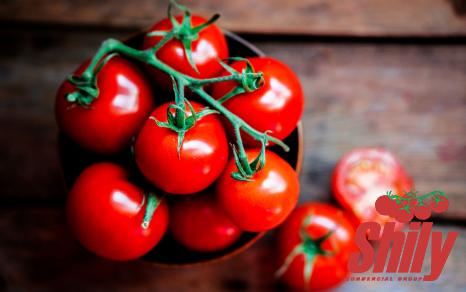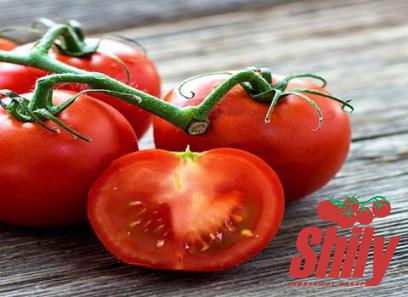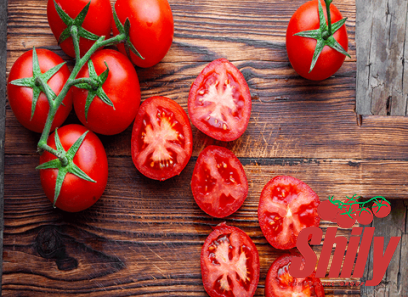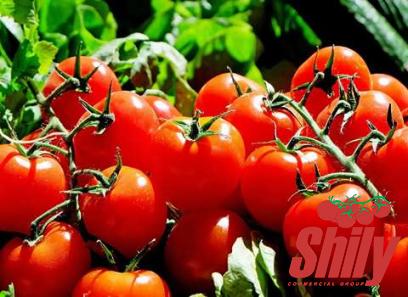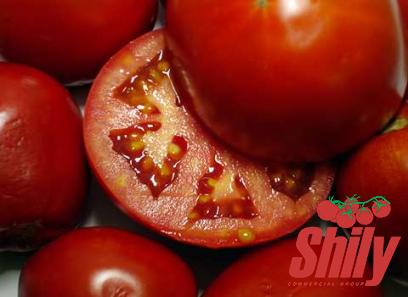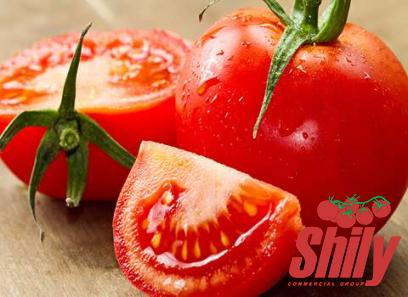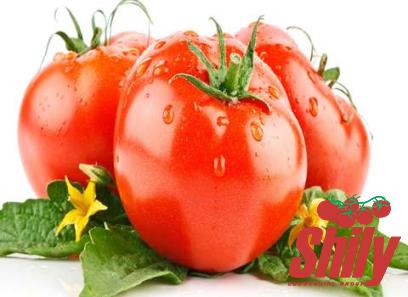A Detailed Overview of the Different Types of Canned Tomatoes
Introduction:
Canned tomatoes are a staple ingredient in many kitchens worldwide. They offer convenience, versatility, and a longer shelf life compared to fresh tomatoes. With numerous variations available in the market, it’s crucial to understand the different types of canned tomatoes and their characteristics. In this article, we will explore the various types and provide insights into their uses, flavors, and culinary applications.
1. Whole Peeled Tomatoes:
Whole peeled tomatoes are one of the most commonly used canned tomato varieties. These tomatoes are harvested when ripe and processed quickly to retain their fresh flavor. As the name suggests, they are left whole and packed in their own juice or tomato puree. Whole peeled tomatoes are known for their vibrant, sweet taste, and their texture can range from firm to tender, depending on the brand. They are ideal for use in pasta sauces, stews, soups, and chili.
2. Crushed Tomatoes:
Crushed tomatoes are made by coarsely blending whole peeled tomatoes. This type of canned tomato contains small chunks of tomato flesh mixed with tomato juice. Crushed tomatoes have a hearty texture and are slightly thicker than whole peeled tomatoes. They are commonly used in recipes that call for chunky tomato sauce or are used as a base for making marinara sauce, pizza sauce, or tomato soup.
3. Tomato Puree:
Tomato puree is made from cooked and strained tomatoes, resulting in a smooth consistency without any seeds or skin. It is thicker than tomato juice and commonly used as a base in various recipes, such as pasta sauces, soups, and braised dishes. Tomato puree offers a concentrated tomato flavor that enhances the taste of a dish. Some tomato purees are available in a double-concentrated form, which means they have been further reduced to intensify the flavor.
4. Diced Tomatoes:
Diced tomatoes are created by chopping up fresh tomatoes and canning them in tomato juice or puree. This type of canned tomato provides a balance between texture and convenience. Diced tomatoes are versatile and can be used in a wide range of recipes, including salsas, chili, casseroles, and stir-fries. They add texture and flavor to dishes without overpowering other ingredients.

5. Tomato Sauce:
Tomato sauce is a smooth, cooked product made from tomato puree or crushed tomatoes. It is typically seasoned with herbs, spices, and sometimes sugar to enhance the flavor. Tomato sauce is a staple ingredient in many traditional Italian dishes, such as pasta sauces, lasagna, and pizza sauce. It has a thick consistency and can be used as a base for other sauces or further seasoned to create customized flavors.
6. Tomato Paste:
Tomato paste is a highly concentrated form of tomato pulp. It is produced by cooking tomatoes for an extended period and then straining the resulting mixture. The thick paste is commonly sold in small cans or tubes. Tomato paste adds richness and depth to recipes due to its intense tomato flavor. It is often used as a base for pasta sauces, stews, and braised dishes. Additionally, tomato paste is an excellent ingredient for adding color and depth to gravies and glazes.
7. Fire-Roasted Tomatoes:
Fire-roasted tomatoes are a specialty type of canned tomatoes that have been charred and roasted over an open flame before being canned. This process imparts a unique smoky flavor to the tomatoes. Fire-roasted tomatoes are typically sold as whole peeled tomatoes, crushed tomatoes, or diced tomatoes. They are frequently used to add a rich smokiness to dishes such as chili, salsas, and Mexican-inspired cuisine.
8. Italian-Style Tomatoes:
Italian-style canned tomatoes are specially processed and seasoned to mimic the flavor profile of tomatoes grown in Italy. These tomatoes are often packed in tomato juice or puree, with added herbs and spices such as basil, oregano, and garlic. Italian-style tomatoes are commonly used in Italian dishes like pasta sauces, bruschetta, and pizza toppings. The herbs and spices added to these canned tomatoes help to impart an authentic Italian taste to the dishes.
Conclusion:
Canned tomatoes are a versatile ingredient that can be used in a wide range of recipes, from soups and sauces to stews and salsas. Understanding the different types of canned tomatoes can help you choose the right variety for your culinary needs. Whether you prefer the vibrant sweetness of whole peeled tomatoes or the intense flavor of tomato paste, there is a canned tomato variety suitable for every dish. Experiment with different types, and enjoy the convenience and flavor they bring to your recipes.Types of Canned Tomatoes: A Comprehensive Guide for Businesses
1. Market Trends and Demand:
The market for canned tomatoes continues to witness steady growth globally. The convenience offered by canned tomatoes, along with their extended shelf life, appeals to consumers seeking quick and easy meal solutions. The demand for various types of canned tomatoes is driven by factors such as the popularity of Italian and Mediterranean cuisines, the increasing trend of home cooking, and the need for versatile and long-lasting pantry staples.

2. Packaging Options:
Canned tomatoes are available in various packaging options to cater to different consumer preferences and business needs. Traditional metal cans are the most common packaging format, offering durability, protection from light, and ease of storage. However, there is a growing trend of alternative packaging options, such as pouches and cartons, that offer portability, lower environmental impact, and more convenient portioning for smaller households.
3. Brand Differentiation:
In a competitive market, it is crucial for businesses to differentiate their canned tomato products from competitors. This can be achieved through various means, including offering organic or heirloom tomato varieties, using premium-quality tomatoes sourced from specific regions, or focusing on unique flavor profiles. By emphasizing their unique selling points, businesses can attract consumers seeking specific attributes in canned tomatoes, thereby gaining a competitive advantage.
4. Organic and Sustainable Options:
With the growing consumer demand for organic and sustainably sourced products, businesses should consider offering canned tomatoes made from organic tomatoes and utilizing eco-friendly packaging materials. By adopting sustainable practices in their production processes and highlighting their commitment to environmental responsibility, businesses can appeal to conscious consumers who prioritize both quality and sustainability.
5. Private Label Opportunities:
Private label products have gained significant popularity in recent years. Retailers and businesses can leverage this trend by offering their own branded canned tomato products. Private label options provide flexibility, control over pricing and quality, and the ability to cater to specific consumer preferences. Moreover, they allow retailers to strengthen customer loyalty and build a distinct brand image in the market.
6. Value-Added Products:
To further cater to consumer demands, businesses can consider offering value-added canned tomato products. This can include products infused with herbs and spices, low-sodium options, or even innovative flavor combinations. By offering unique and convenient products, businesses can tap into niche markets and attract consumers looking for specialty or gourmet canned tomato options.
7. Foodservice and Bulk Packaging:
The foodservice industry, including restaurants, hotels, and catering businesses, requires bulk packaging options for their operations. To cater to this market segment, businesses should consider offering canned tomato products in larger sizes, such as #10 cans or pouches, specifically designed for commercial use. This allows foodservice businesses to purchase in bulk and ensures a steady supply of quality canned tomatoes for their menu items.

8. Export Opportunities:
Canned tomatoes present a profitable opportunity for businesses looking to enter the global market. Countries with a high demand for tomato-based products or a limited supply of fresh tomatoes rely on imports of canned tomatoes. By complying with international regulations, identifying potential distribution channels, and adapting to local preferences, businesses can establish a strong presence and tap into new markets with their canned tomato products.
9. Online Sales and E-commerce:
The rise of e-commerce has revolutionized the way consumers shop for groceries. Businesses should consider establishing a strong online presence and offering their canned tomato products through various digital platforms. By providing an easy-to-navigate website, offering competitive pricing, and ensuring efficient fulfillment and delivery options, companies can broaden their customer base and increase sales volume.
10. Collaborations and Recipe Development:
Collaborating with chefs, recipe developers, or food bloggers can help businesses showcase the versatility of their canned tomato products. Recipe development initiatives can focus on creating unique and enticing dishes that highlight the convenience and quality of canned tomatoes. By featuring these recipes in marketing campaigns, businesses can engage consumers, inspire creativity in the kitchen, and drive sales of their canned tomato products.
11. Consumer Education and Recipe Resources:
Businesses should invest in consumer education initiatives to highlight the benefits and various uses of canned tomatoes. Providing recipe resources, cooking tips, and creative ideas for incorporating canned tomatoes into everyday meals can help consumers understand the versatility and flavor potential of these products. This, in turn, can boost consumer confidence in using canned tomatoes and encourage repeat purchases.
12. Quality Control and Certification:
To ensure the reliability and consistency of their canned tomato products, businesses should implement rigorous quality control measures. Obtaining certifications such as ISO 22000 (Food Safety Management System) or GFSI (Global Food Safety Initiative) can provide assurance to customers and partners regarding the safety, quality, and traceability of the canned tomatoes. These certifications also demonstrate a commitment to maintaining high standards in production and supply chain management.
Conclusion:
Understanding the different types of canned tomatoes and their market dynamics is essential for businesses aiming to succeed in this industry. By staying abreast of market trends, offering packaging options that align with consumer preferences, and identifying opportunities for product differentiation, businesses can position themselves for success. Embracing sustainability, exploring private label options, and leveraging online sales channels are additional strategies that can contribute to growth and profitability in the canned tomato business. By prioritizing quality, consumer education, collaborations, and certifications, businesses can build trust, loyalty, and a strong brand presence in the market.


